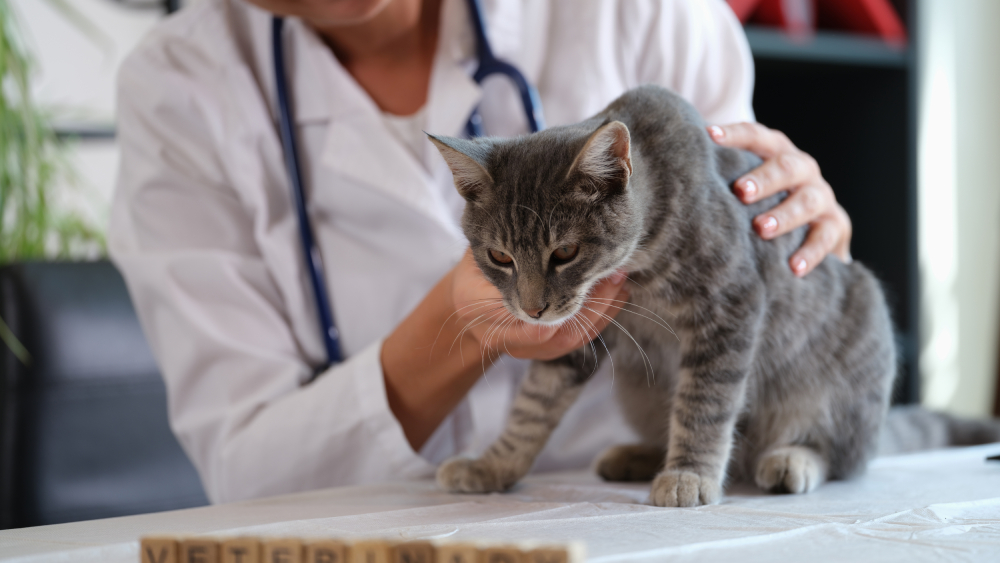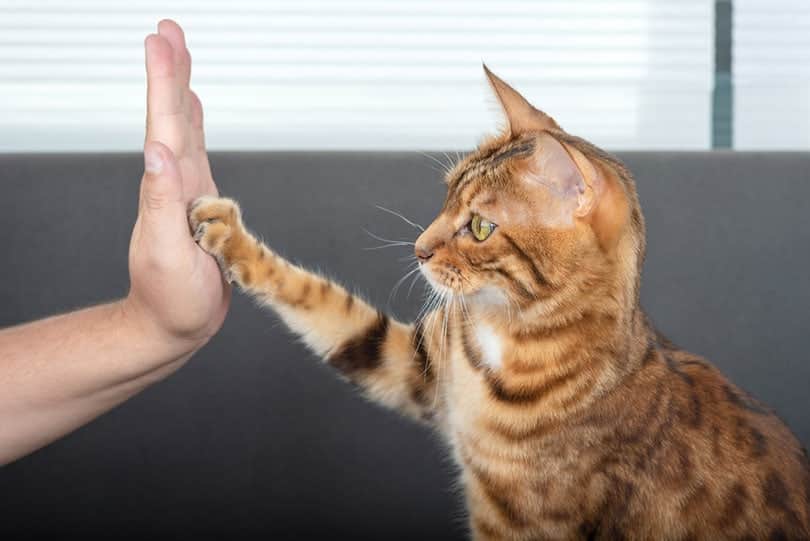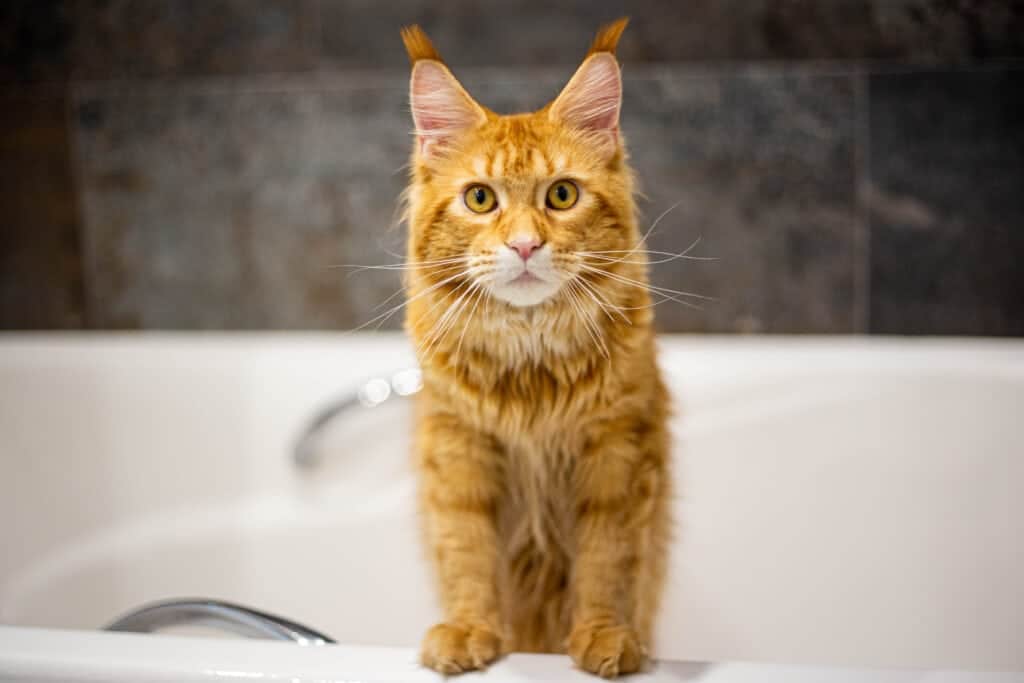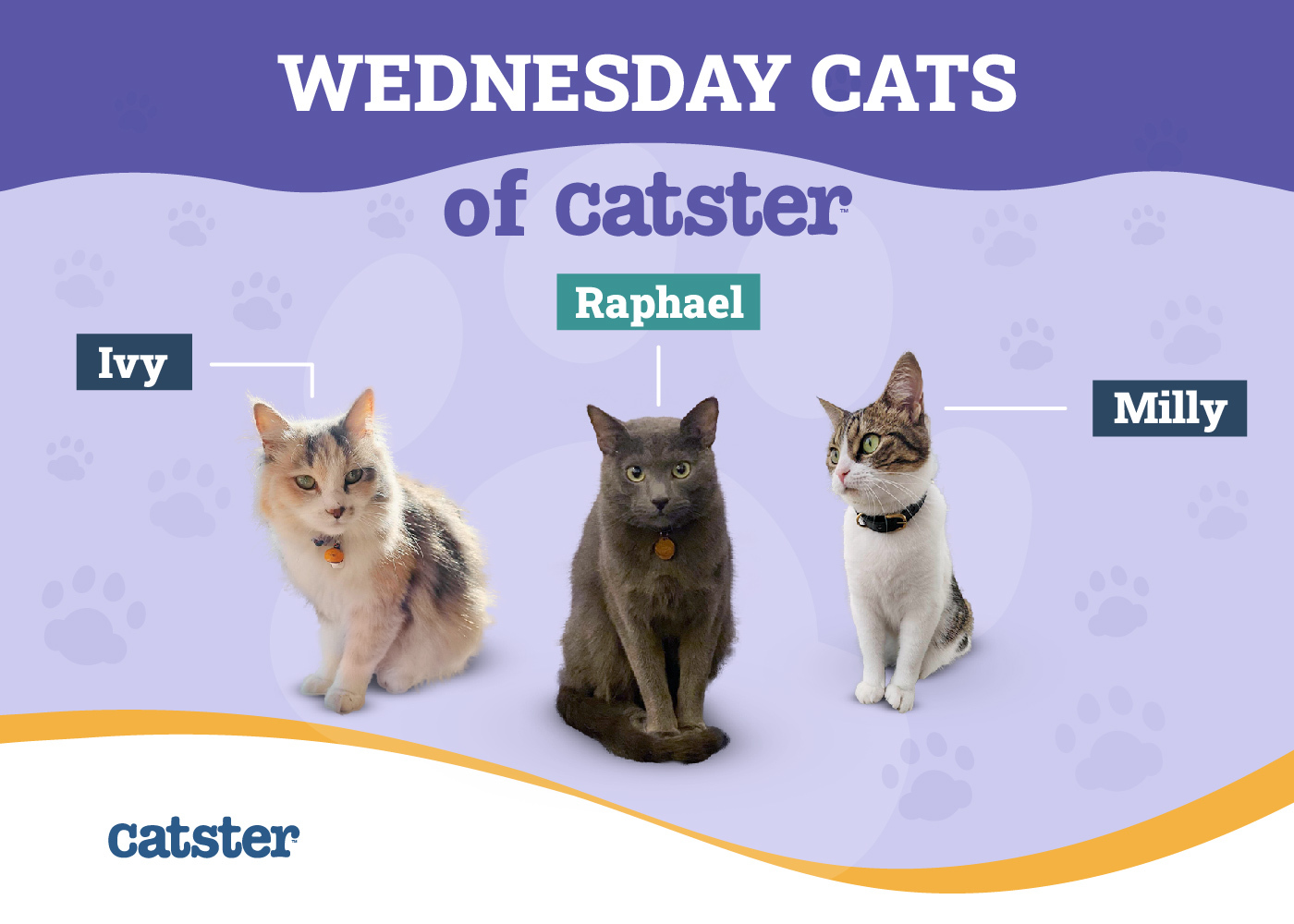Neem oil is the current trending natural remedy of the month, being touted for everything from insect repellent to treatment for ringworm. Anecdotes of its use on pets have been reported, but vets are not so quick to jump on the bandwagon because, at the moment, there is limited evidence-based research into benefits or safety of neem oil in cats.
The ASPCA does not list it as toxic to felines, but we would still urge you to consult with your veterinarian and avoid using it, as it’s better to be safe than sorry. There have been reports of toxicity linked to neem oil topical products in cats, and this on its own is a reason enough not to use such products in felines.
Any topical products that are applied on the cat’s skin may eventually end up being ingested through licking, so it’s best to avoid using products of unknown safety margins or questionable or limited benefits.
Keep reading to learn everything you need about Neem oil and cats.

What Is Neem Oil?
Neem oil is a carrier oil extracted from the neem. Azadirachta indica, or the neem, is a tree native to Sri Lanka, Burma, and India, though it is now grown in tropical regions worldwide. Ayurvedic practitioners use various parts of the tree to treat illnesses, but there is no veterinary research or evidence to back these supposed claims, and it is not a part of the standard medical protocols when it comes to treating pets.
While Ayurvedic practitioners use the whole tree, only the oil extracted from the tree has caught on in the West. Over here, we use the oil extracted from the seeds, typically in a topical application. The oil is generally extracted using a process called “cold pressing,” where the oil is extracted without using heat. Cold-pressed oils tend to be purer than oils expressed using heat.

Why Is Neem Oil So Popular?
Neem oil contains essential nutrients like omega-6 and omega-9 fatty acids and vitamin E. It’s used around the world in the food industry, agriculture, and human health. It is believed that the primary benefits can be attributed to triterpenes—a chemical compound found in certain plants that has been used historically for its anti-inflammatory properties in folk medicine.1 Other properties of neem oil may include antibacterial, antifungal, insecticidal, pesticidal, plasticizer, and antioxidant properties.
One of the triterpenes is limonoids, and azadirachtin is the most important compound among the limonoids.2 This compound has been studied as an insecticide against the flea Ctenocephalides felis in both dogs and cats, and it has shown a reduction in flea numbers for 7 days when combined with other products.3 However, it was used alongside DEET (diethyltoluamide) and citronella, both of which are toxic to cats and dogs, and may lead to gastrointestinal signs and irritation of the mouth, throat, nose, and lungs, or even neurological signs if exposed to in significant amounts.
There is limited info on the safety of these products when used in cats, with some studies raising concern about actual toxicity, particularly as cats may ingest them through grooming, or they could lead to skin irritation. It’s crucial to speak to your vet about safe and regulated products approved for use in felines with proven efficacy against fleas and other parasites.
If you need to speak with a vet but can't get to one, head over to PangoVet. It's an online service where you can talk to a vet online and get the advice you need for your pet — all at an affordable price!
Risks of Using Neem Oil on Cats
The ASPCA does not list neem oil as a toxic substance for cats, but that doesn’t mean it’s fine to be given to cats in any form. There is no evidence-based or critically evaluated data on the effects and safety of neem oil in cats, and it would be unwise and potentially harmful to consider such products, particularly without consulting with a veterinarian.
A study published in 2009 looked into potential toxicity in 99 cats due to neem oil that were reported to the Veterinary Poisons Information Service in London between 2001 and 2007. The majority of cats developed clinical signs, like lethargy, drooling, loss of balance, muscle spasms, twitching, and convulsions. Of them, 27 cats that developed clinical signs made a full recovery and five cats were euthanized, although in two cases, the treating veterinarians considered the illness to be unrelated to neem oil. Unfortunately, two cats died, out of which in one case the clinical signs were also thought to be unrelated to neem oil.

Studies on toxicity of neem oil in rats and rabbits showed similar signs and outcomes. The mechanism of toxicity remains unknown but resembles permethrin-like toxicity in cats. The worry is that either the neem oil from these products was mislabeled and mistakenly combined with permethrins or that neem oil has indeed caused toxicity.
There are many safe and effective feline-specific products available when it comes to managing flea infestations in cats, and neem oil should not be used for this, or any other purpose, based on the information available. Other risks of using neem oil on pets may include interactions with particular medicines and treatments in cats suffering from certain conditions and illnesses.
Inappropriate dosing and concentrations of neem oil, or in combination with other harmful substances such as permethrins or essential oils, can cause your cat to become seriously ill. Based on everything we discussed, we cannot safely recommend using neem oil in cats, as it’s just not worth the risk.
Please consult with your veterinarian if you have already used neem oil in your cat or if your cat is experiencing any signs of illness, such as drooling, vomiting, diarrhea, or skin irritation.

Final Thoughts
While neem oil might seem like an excellent home remedy for just about anything, it can be harmful or even toxic to cats, and we do not advise doing so. There is a big choice of antiparasitic and flea treatments available on the market that are safe and approved for use in felines and make a great and efficient alternative to neem oil.
Featured Image Credit: Mukesh Kumar, Shutterstock










